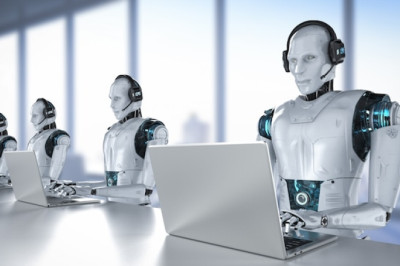The advent of artificial intelligence (AI) has revolutionized many industries, and the call center sector is no exception. As AI technologies become more sophisticated, there are growing concerns about the future of human call center jobs. This article explores the potential impact of AI on call center employment and whether human roles will still be relevant in this evolving landscape.
Enhanced Efficiency Through Automation
AI can handle repetitive and mundane tasks with remarkable efficiency, which can significantly reduce the workload for human agents. Automated systems can manage routine inquiries, process transactions, and provide basic information without human intervention. This allows human agents to focus on more complex and nuanced issues that require empathy, critical thinking, and problem-solving skills. While some jobs may be displaced by automation, new opportunities could arise for humans to take on more specialized roles.
Improved Customer Experience
AI-driven tools like chatbots and virtual assistants can provide instant responses to customer queries, leading to faster resolution times and improved customer satisfaction. However, there are still many scenarios where human interaction is irreplaceable. Customers often prefer speaking to a real person when dealing with sensitive issues or when they need personalized assistance. Therefore, while AI can enhance the overall customer experience, human agents will continue to play a crucial role in delivering high-quality service.
The Need for Emotional Intelligence
One of the key limitations of AI is its inability to understand and respond to human emotions effectively. Emotional intelligence is essential in customer service, especially when dealing with frustrated or distressed customers. Human agents possess the empathy and emotional awareness needed to navigate these interactions successfully. As a result, there will always be a demand for human call center employees who can provide the emotional support and understanding that AI lacks.
Hybrid Work Models
Many companies are adopting hybrid models that combine AI and human agents to optimize their call center operations. In these models, AI handles initial interactions and simple tasks, while human agents step in for more complex issues. This approach not only improves efficiency but also ensures that customers receive the best possible service. Hybrid models demonstrate that AI and human workers can coexist and complement each other, rather than one replacing the other entirely.
Upskilling and Reskilling Opportunities
As AI takes over routine tasks, there is a growing need for call center employees to upskill and reskill. Training programs focused on advanced customer service techniques, technical skills, and AI management can help workers stay relevant in the job market. By investing in continuous learning and development, call center employees can adapt to the changing landscape and take on new roles that leverage both their human capabilities and AI technology.
Job Creation in AI Management and Development
The rise of AI in call centers also creates new job opportunities in AI management, development, and maintenance. Professionals are needed to design, implement, and oversee AI systems to ensure they function correctly and meet business objectives. Additionally, roles in data analysis, cybersecurity, and AI ethics are becoming increasingly important. These new positions highlight that while AI may change the nature of call center jobs, it also opens up avenues for career growth and innovation.












Comments
0 comment